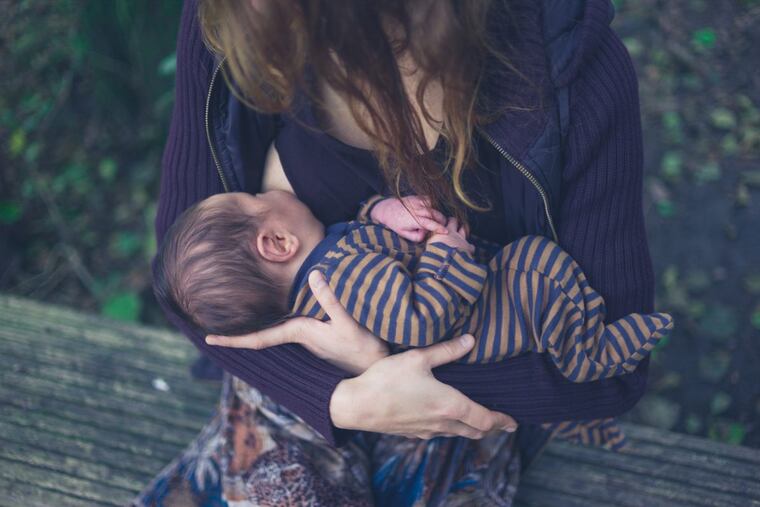Study: Breastfeeding for just two months can slash Sudden Infant Death risk
New study says mothers should breastfeed their babies for at least two months to get many benefit, including reduced risk of SIDS, but longer is even better.

Breastfeeding a baby in the first six months of life — even if the child also receives formula — reduces the risk of sudden infant death syndrome by more than half, according to a new analysis of national and international data. And the SIDS benefit starts to show up at 2 months of age, the data indicate.
In fact, the study by researchers from the University of Virginia School of Medicine found that even if the mother stops breastfeeding the baby after two months, the protective benefit continues.
"There are a lot of reasons to breastfeed. There are a lot of advantages to both the baby and the mother, and this is another reason to encourage mothers to breastfeed," said Fern R. Hauck, one of the study's main researchers.
The analysis, published this month in the journal Pediatrics, offers encouraging and useful information for mothers of newborns, said Hauck, a professor of family medicine.
"One of the most interesting findings is that any breastfeeding – it didn't have to be exclusive – is quite protective of SIDS," Hauck said. "That's really good news for mothers, because not all mothers can or do choose to exclusively breastfeed, and their babies will still get the benefit of breast milk."
Previous studies have suggested that breastfeeding is linked to decreased danger of SIDS, a leading cause of death for babies 1 year or younger. But this study is the first to identify a minimum amount of time babies should be breastfed to get the anti-SIDS benefits. For babies younger than 2 months, nursing did not appear to yield protection from SIDS — but as a practical matter, nursing must start right after birth or the mother's milk dries up.
The Virginia study's data included nearly 2,300 SIDS cases and more than 6,800 other infants. It included research from Chicago, New Zealand, Germany, Ireland, Scotland, and England.
The analysis found that babies breastfed either partially or exclusively for more than two months, and up to four months, had a 40 percent decrease in SIDS risk; if they were breastfed up to six months, there was a 60 percent reduction in risk. The improvement was only slightly higher for infants breastfed more than six months.
SIDS risk decreased at about the same rates whether the babies were exclusively breastfed or received both breast milk and formula during that time.
The Virginia researchers factored out maternal smoking during pregnancy, baby sleep position, maternal bed- and room-sharing, and other variables that could affect infant health outcomes.
Exactly how breastfeeding protects against SIDS was not part of the Virginia study, but Hauck said breast milk was known to confer immunity benefits that can lower viral infection rates associated with SIDS risk. Breast milk also contains substances that contribute to healthy brain development.
Another "very strong possibility," Hauck said, is that breastfed babies tend to sleep more lightly, are more easily roused from sleep than formula-fed infants, and may seek to feed more often. That, she said, can all help safeguard an infant who sleeps so deeply, she doesn't wake up gasping and crying if oxygen flow is interrupted.
The Virginia researchers are calling for more efforts to increase rates of breastfeeding around the world. The World Health Organization established a goal of having more than half of infants worldwide to be exclusively breastfed for at least six months by 2025. In the United States, doctors commonly advise holding off on introducing solid food until infants are 6 months old.